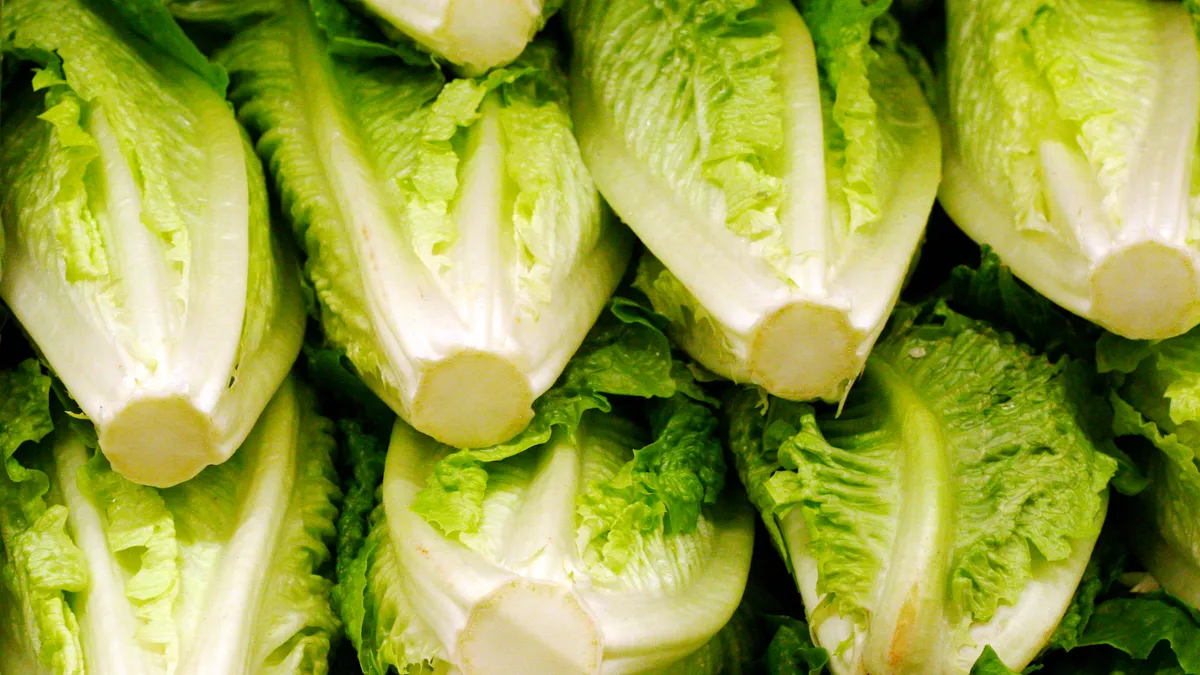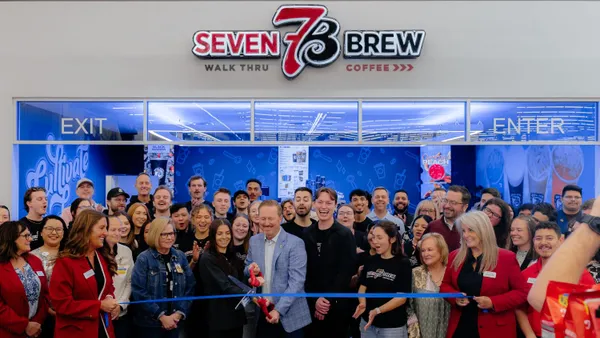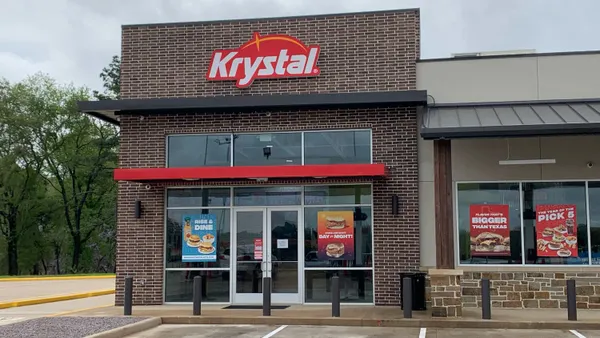Dive Brief:
- Restaurants are still adapting their menus with alternative leafy greens such as spinach, arugula and iceberg lettuce following the romaine lettuce recall, but prices for these greens are rising quickly, according to Bloomberg. Sales of romaine lettuce had already slipped 12% in he U.S. before the recall, tapping out at $47 million in the four week period that ended Nov. 3.
- The Food and Drug Administration has tied the recent round of E. coli contaminated romaine lettuce to suppliers in central and northern California. The agency is working with suppliers in Florida and Arizona to bring uncontaminated romaine lettuce back into the supply chain following a broad recall, according to Nation’s Restaurant News.
- The FDA also is working with suppliers to create a labeling system that will contain harvest dates and source locations to better keep track of where lettuce is coming from.
Dive Insight:
Even though the source of the latest outbreak has been traced to a specific region, the investigation is ongoing, and romaine has not yet been put back into the supply chain. And with increased demand for other greens, alternative lettuce varieties aren’t necessarily easy to come by either. The Habit Burger has been making menu adjustments daily depending on supply and plan to do so through the week, the company told Nation's Restaurant News.
Panera, Chipotle and Wendy’s likely felt the biggest short-term impact from the recall since they have a lot of romaine on their menus compared to other large chains, BTIG restaurant analyst Peter Saleh told Bloomberg. California-based salad chain Sweetgreen took all of its spring mix and romaine lettuce off its menu until more information was known, impacting 90 locations.
Wendy’s has responded by making salads and sandwiches using iceberg lettuce, according to Bloomberg. Panera also has been substituting its menu after it initially pulled all but one of its salads after the recall was issued. Habit Burger is using iceberg and red and green leaf lettuce for some items, including salads. Caesar salads have been tabled at Wendy’s and Habit Burger until further notice.
The fallout of the latest scare will likely be short-lived, with most customers just forgoing salad concepts until the all-clear is given.
“You probably won’t see much of an impact in the numbers for the vast majority of the companies,” BTIG's Saleh told Bloomberg.
Restaurants would be wise to prepare for more broad alerts in the future until the FDA and suppliers can more accurately trace outbreaks. Consumers are demanding more fresh, local ingredients, which can mean that individual stores across restaurant chains are using different suppliers — making it difficult for companies to track produce.
But the FDA does have a plan. In addition to working with the produce industry to voluntarily label romaine lettuce, the agency hired Walmart’s senior vice president of Food Safety, Frank Yiannas, to look into a computerized system that can better track produce from farm to table.
New plans to label romaine also could help restaurants avoid lawsuits. During the last outbreak in spring, which was traced to Yuma County, Arizona, 25 Panera customers got sick, but the source was difficult to trace since the restaurant’s supplier got its romaine from multiple locations. Panera was one of the largest restaurants to get hit by lawsuits following the outbreak in spring.
Foodborne illnesses can be costly for restaurants, with fines and legal expenses reaching up to $1.9 million for fast food restaurants and up to $2.1 million for fast casual restaurants. Restaurants serving fresh ingredients will need improved contingency plans in the future to better react to food contamination and adapt menus to keep customers coming in the door.














